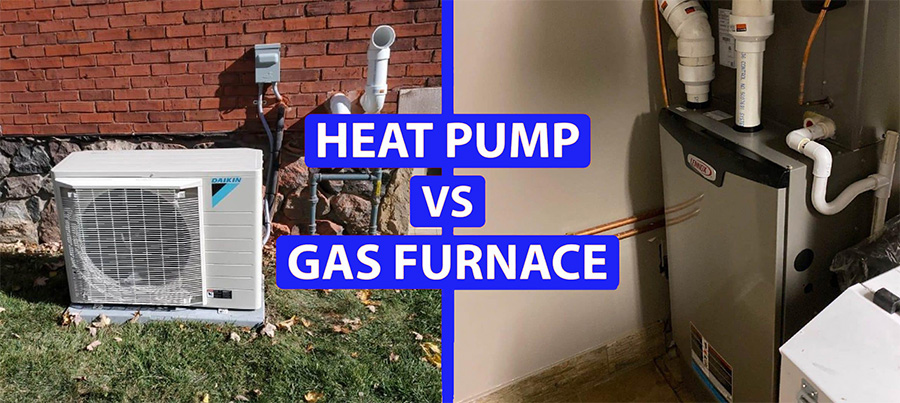You’ve probably found yourself standing in your driveway on one of those weird Alabama February days when it’s 70 degrees at lunch and 35 degrees by dinner, wondering what the heck kind of heating system makes sense in this climate. Most people assume furnaces are always cheaper to operate, but here’s the thing about Alabama weather: it’s actually creating a sweet spot for heat pumps that didn’t exist twenty years ago.
At Southeastern Mechanical Services, we get this question almost daily from Decatur homeowners trying to make sense of their energy bills. And honestly? The answer isn’t as straightforward as the equipment salespeople make it sound.
The Economics of Alabama Heating
Let’s cut through the marketing fluff and talk real numbers. Alabama sits in what HVAC engineers call the “transition zone” where both heating systems can work well, but efficiency varies wildly based on your specific situation.
Heat Pump Advantages in Our Climate:
- Dramatically more efficient than furnaces when temperatures stay above 30°F
- Provides both heating and cooling (you’re not buying two separate systems)
- Works beautifully during our mild winter stretches
- Lower carbon footprint if that matters to your family
But here’s where it gets interesting: Around 85% of Alabama’s winter days fall into heat pump efficiency range. That remaining 15% though? That’s when things get expensive.
When Furnaces Still Make Economic Sense
Gas furnaces shine during those brutal cold snaps we get every few years. You know the ones where your heat pump starts working overtime and your electric bill makes you question life choices.
If natural gas is readily available in your Decatur neighborhood (and let’s be honest, coverage is still patchy in some areas), furnaces offer predictable operating costs regardless of outdoor temperature. No backup heat strips kicking in at the worst possible moment.
Furnace Benefits:
- Consistent performance regardless of outdoor temperature
- Often lower upfront installation costs
- Natural gas prices tend to be more stable than electricity rates
- Faster recovery when heating large spaces
Plus, there’s something psychologically comforting about that blast of warm air when it’s genuinely cold outside.
The Real Operating Cost Breakdown
We’ve crunched the numbers on dozens of local installations, and here’s what we typically see for a 2,000 square foot Decatur home:
Heat Pump Annual Operating Costs:
Mild winters (like 2019-2020): $650-850
Average Alabama winters: $750-950
Harsh winters (think polar vortex years): $950-1,300
Gas Furnace Annual Operating Costs:
Consistent range: $700-950 regardless of winter severity
See the pattern? Heat pumps can save you money in typical years but get expensive during extreme weather. Furnaces provide cost predictability.
What About Dual Fuel Systems?
This is where things get genuinely clever. Dual fuel systems use a heat pump for mild weather and automatically switch to a gas furnace backup when temperatures drop below around 35°F or when electric rates spike.
Yeah, it’s more complex upfront, but we’ve seen some impressive results in North Alabama installations. You get the efficiency of a heat pump most of the time with the reliability of gas heat when you need it.
The economics work out particularly well if you’re already planning to install both heating and cooling anyway.
Installation and Equipment Costs
Let’s talk upfront investment because this is where many homeowners get sticker shock:
Heat Pump Systems: $8,000-14,000 installed (including indoor and outdoor units)
Gas Furnace + AC: $9,000-15,000 installed (two separate systems)
Dual Fuel Systems: $11,000-18,000 installed
These ranges assume decent quality equipment, not the cheapest stuff that’ll break in five years or the premium models with bells and whistles you’ll never use.
The Hidden Costs Nobody Mentions
Here’s what equipment salespeople conveniently forget to mention:
Heat Pump Considerations:
- Backup electric heat strips (expensive to operate)
- More complex refrigeration components that can need costly repairs
- Performance drops significantly below 25°F
Furnace Reality Check:
- You’ll still need a separate AC system for Alabama summers
- Natural gas line installation if you don’t already have it
- Annual furnace maintenance plus AC maintenance
Our Honest Take for Decatur Homeowners
After installing hundreds of both systems across North Alabama, here’s our straight assessment:
Choose a Heat Pump if:
- You want one system handling both heating and cooling
- Your home has good insulation and reasonable air sealing
- You don’t mind slightly higher bills during extreme cold snaps
- Environmental impact factors into your decisions
Stick with a Furnace if:
- You prefer predictable heating costs
- Natural gas is easily accessible
- You have a larger home that needs quick temperature recovery
- You’re replacing an existing gas system
Consider Dual Fuel if:
- You want the best of both worlds and can handle the complexity
- You’re building new or doing major renovations anyway
- Long-term operating efficiency matters more than upfront costs
The Bottom Line for Alabama
Most Decatur, Alabama homeowners will save money with a properly sized heat pump over 7-10 years, especially with modern variable-speed models that handle temperature swings better than older equipment. But if you’re the type who cranks the heat to 75° during ice storms and expects instant results, a furnace might be worth the extra cost for peace of mind.
The truth is, both technologies have gotten so much better in recent years that you’re probably going to be comfortable either way. The economic difference often comes down to your specific home, utility rates, and honestly, your tolerance for complexity.
Ready to get real numbers for your specific situation? Contact Southeastern Mechanical Services for a detailed analysis based on your home’s characteristics and your family’s comfort preferences. We’ll help you cut through the sales pitches and make a decision that actually makes sense for Alabama living.








